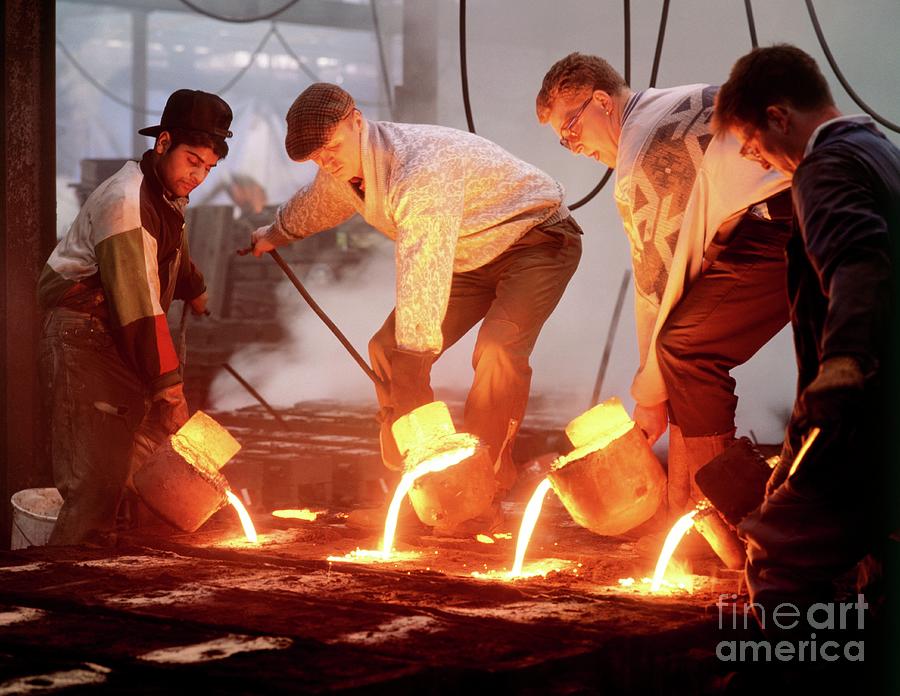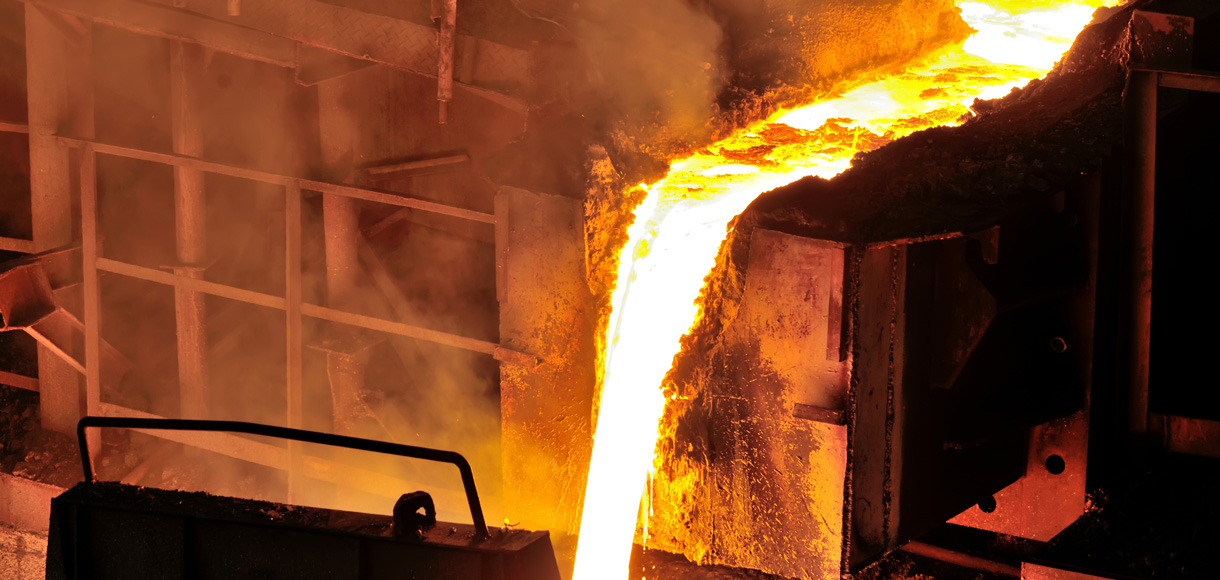Why Sustainability is Influencing the Future of Aluminum Foundry Operations
Wiki Article
Recognizing Metal Casting Procedures: Technologies and Trends in the Foundry Market
The foundry sector is experiencing considerable improvements driven by technological advancements. Technologies such as 3D printing and synthetic knowledge are improving steel casting processes, boosting performance and precision. Lasting techniques are obtaining traction, stressing the relevance of environmental responsibility. In addition, the introduction of innovative products and automation is boosting general casting high quality. These developments recommend an essential change in the industry, elevating inquiries regarding future instructions and implications for makers.Developments in 3D Printing for Metal Casting
Recent innovations in 3D printing innovation have actually significantly changed the landscape of metal casting. The assimilation of additive production techniques has made it possible for the quick manufacturing of facility patterns and mold and mildews that were difficult or previously hard to attain with traditional techniques. By utilizing materials such as sand and metal powders, suppliers can produce elaborate geometries that improve design versatility and decrease material waste. This advancement not just quickens the prototyping procedure however likewise permits the customization of elements customized to particular applications.
3D printing facilitates shorter lead times, which is crucial in industries requiring quick turnaround for parts. The modern technology also sustains the manufacturing of light-weight frameworks, consequently enhancing energy performance in final product. As a result, the foundry industry is seeing a change in the direction of even more sustainable practices, driven by the effectiveness and precision provided by these modern-day 3D printing strategies in steel casting processes.
The Role of Expert System in Precision Manufacturing
As sectors increasingly take on sophisticated manufacturing innovations, expert system (AI) is playing a critical function in improving precision production processes. AI algorithms assess large datasets to optimize and identify patterns production criteria, leading to improved precision and efficiency. In metal casting, AI aids in predictive upkeep, minimizing downtime by projecting tools failures before they happen.AI-driven simulations enable producers to model the casting process, refining styles and minimizing issues. Artificial intelligence techniques boost high quality control by detecting anomalies in real-time, therefore making sure that only products meeting strict specifications continue with the production line.

Lasting Practices in the Foundry Market
Sustainability has actually arised as a critical emphasis in the foundry sector, triggering producers to take on techniques that minimize ecological influence while maintaining efficiency - Aluminum Foundry. One noticeable strategy consists of the recycling of materials, especially steels, which considerably minimizes waste and power usage. Shops are progressively implementing closed-loop systems, enabling for the reuse of sand and other casting materials, therefore minimizing the requirement for virgin resourcesIn enhancement, energy-efficient modern technologies, such as electric furnaces, are getting grip, as they lower greenhouse gas exhausts compared to conventional techniques. Moreover, several shops are exploring using eco-friendly binders and green finishes to minimize harmful by-products. Worker training on sustainable methods has likewise come to be vital, fostering a society of environmental responsibility within companies. On the whole, these lasting techniques not only add to ecological preservation yet additionally enhance the long-term stability of the foundry market in an increasingly eco-conscious market.
Innovations in Materials for Improved Casting Quality
With the continuous advancement of the foundry market, developments in materials have come to be important for enhancing casting high quality. Advanced alloys and composite products are significantly being made use of to enhance mechanical homes and reduce defects in spreadings. These products typically use premium strength-to-weight proportions and improved resistance to corrosion and wear, dealing with the needs of contemporary applications.In addition, the incorporation of nanomaterials is getting traction, permitting finer microstructures that lead to boosted surface area coatings and dimensional accuracy. Aluminum Foundry. 3D printing technologies also contribute in producing complicated geometries with marginal waste, allowing making use of specific materials that were previously testing to cast
Additionally, the growth of ecologically friendly binders and ingredients adds to sustainable techniques while maintaining top quality end results. Jointly, these advancements not only improve the performance of actors items but also straighten with the industry's change visit site towards sustainability and efficiency.
Automation and Robotics in Metal Casting Processes
Automation and robotics are revolutionizing steel casting procedures by improving and simplifying procedures precision. In contemporary shops, robotic systems are employed for tasks such as mold and mildew handling, putting, and completing, substantially decreasing human treatment. This not only decreases the threat of crashes however additionally ensures regular top quality in production.Automation modern technologies, such as computer numerical control (CNC) makers, facilitate detailed layouts and intricate geometries that were previously challenging to accomplish. Furthermore, real-time information analytics make it possible for manufacturers to monitor procedures and maximize efficiency continuously.
The integration of automation leads to boosted productivity and performance, enabling foundries to meet expanding market needs while reducing preparations. As the market embraces these innovations, the labor force is also developing, needing brand-new abilities to run and preserve innovative equipment. On the whole, the fostering of automation and robotics is a pivotal fad go to website shaping the future of steel casting procedures.
Regularly Asked Inquiries
What Is the Background of Metal Casting Strategies?
Metal casting techniques go back to old worlds, with evidence of bronze casting in Mesopotamia around 3000 BCE. Over centuries, techniques developed considerably, including innovations in products and innovation, forming modern-day commercial methods.Exactly How Does Metal Casting Influence the Environment?
Metal casting significantly affects the atmosphere via power usage, discharges, and waste generation. Nonetheless, developments in sustainable techniques and technologies aim to alleviate these impacts, promoting even more ecologically pleasant approaches within the market.What Security Procedures Are Critical in Factories?

What Are Typical Defects in Metal Casting Products?
Usual flaws in steel casting items include porosity, contraction, misruns, cold shuts, and surface area flaws. These concerns emerge from factors such as inappropriate temperature level control, poor mold and mildew layout, and contamination throughout the casting procedure.Exactly How Do Foundries Guarantee Quality Assurance in Casting Processes?
Foundries implement strenuous quality assurance steps through regular examinations, standardized testing, procedure tracking, and adherence to market standards. These practices help identify issues early, making certain the stability and reliability of the last casting products.Developments such as 3D printing and fabricated knowledge are reshaping metal casting processes, boosting efficiency and precision. Recent advancements in 3D printing modern technology have actually significantly transformed the landscape of metal casting. Automation and robotics are changing metal casting processes by enhancing and improving operations precision. Metal casting strategies day back to ancient people, with proof of bronze casting in Mesopotamia around 3000 BCE. Usual problems in metal casting items consist of porosity, shrinkage, misruns, cool web shuts, and surface flaws.
Report this wiki page